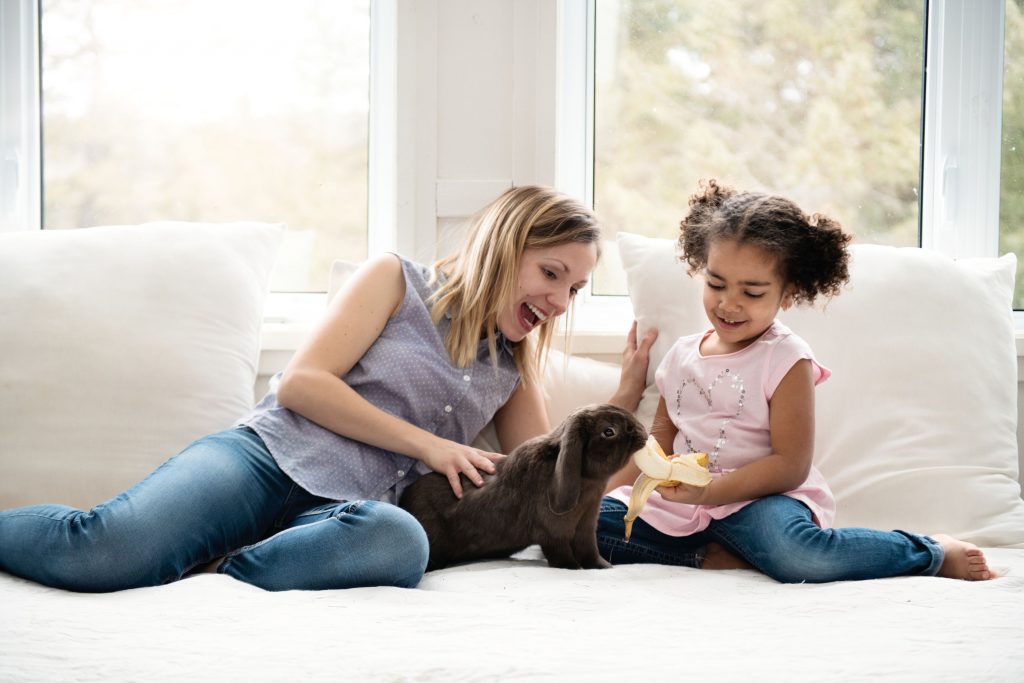
From leopard geckos to Bengal cats, cockatoos to labradors, every pet arrives with their own unique personalities, health needs, and basic requirements. While cats and dogs are among the most popular pets, exotics and pocket pets represent a fair share—especially with owners that have limited space and/or time. If you’ve ever wondered if now is the right time to adopt a pet rabbit, we’ve got you covered with some helpful hints on care.
What’s Up, Doc?
Rabbits are lagomorphs, a group of animals that includes hares and pikas. In contrast with rodents, lagomorphs boast four incisors in the upper jaws, (instead of two like rats and mice have). However, all of these animals have continuously growing teeth that can be shaved down through eating fibrous food or with the help of a qualified veterinarian.
Rabbits play important roles in the natural world, eating an array of grasses, herbs, and flowers. As prey animals, they can be skittish and cautious. Depending on their overall health, diet, breed, lifestyle, and environment, a pet rabbit can live between 5-8 years.
Exotic Equals Great
As an “exotic pet,” a pet rabbit requires highly-specialized care. Starting with their enclosure or habitat, they must enjoy enough space to freely hop around. There should always be a variety of safe, interesting toys to play with. Since daily enrichment opportunities are central to their well-being, a pet rabbit thoroughly enjoys breaks from their cage to explore, be held, and experience new places.
Hygiene Matters
You can potty train a pet rabbit! Sure, it might take extra time and consistency, but a pet rabbit is typically amenable to having their bathroom in a certain area. Be sure to keep this spotless (as much as possible) as they won’t continue to go there if it’s full or filthy. Their cage should be cleaned at least once a week, with new bedding installed each time.
Munchy Bunny
Your pet rabbit is an herbivore. They will eat specially-formulated rabbit pellets and hay, but fresh veggies, like carrots, parsley, and greens, round out a healthy diet. An occasional slice of banana for your bunny is okay as a treat. Speak with a veterinarian about the perfect diet for your pet bunny. And always rotate out dirty water at least once a day.
Play Time
As long as they are safely enclosed, you can bring your pet rabbit outside. Always stay close to your pet rabbit in your backyard to reduce encounters with other animals, including birds of prey.
If the weather is mild enough for an outside hutch, be sure it is still insulated against cool nights and hot days. Ideal temperature for a pet rabbit sleeping outside is about 65 degrees. Regularly check that the hutch is latched and secured from nighttime predators.
Fuzzy Feet
Did you know that rabbits don’t have paw pads? We can give you all sorts of rabbit tidbits at each wellness exam you schedule for them. We can ensure that your pet rabbit is in tip-top shape and place recommendations for nutrition, enrichment, and disease prevention.
Love Your Pet Rabbit
Of all the pets we are privileged to see and care for, pet rabbits are among our favorites. They are cute, playful, curious, entertaining, and very interesting animals to be around. If our staff can assist you in preparing for a new pet rabbit, or you have questions about your lagamorph’s health and wellness, please call us at (818) 614-9929. Shiloh Veterinary Hospital is always happy to help.
